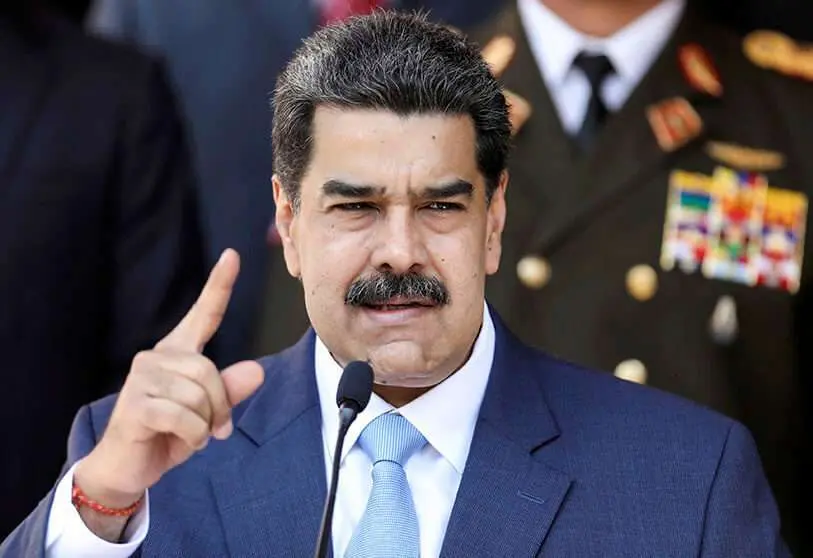Maduro tightens the noose on an exhausted Venezuela

With infinite patience and docility, thousands of Venezuelans endure endless queues to refuel. With refineries out of action due to lack of proper maintenance, Iranian allies are the ones who supply Venezuela with gasoline that has gone from being practically free to costing half a dollar a gallon, and whose payment is required in many cases in U.S. currency. This is a new difficulty to add to the increasingly arduous search for daily food in a pure subsistence economy.
It is not surprising, therefore, that the demonstrations and the zeal to overthrow the Chavista regime have diminished notably. Five million Venezuelans are searching for life on the American continent and in Europe, forced into exile more by misery than by political incompatibility. Those who remain in the country are adapting as best they can to the reality of a ruthless regime, which demands proven adherence to the card - the so-called carnet de la patria - in order to gain access to food stamps or any other type of subsidy.
Taking advantage of the new restrictions due to the COVID-19 pandemic, President Nicolás Maduro has tightened the noose on the increasingly tenuous dissidence and, especially, on the opposition embodied in Juan Guaidó, still recognized as Venezuela's "president in charge" by half a hundred countries. Several of his closest collaborators have been arrested and imprisoned on charges of promoting terrorist activities. The Supreme Court, whose members are also Chavistas, has stripped him of the presidency of the National Assembly in favour of Luis Parra, who embodies alleged opposition to the regime. The same judges have removed that legislative power from the making of the National Electoral Council, the State body responsible for ensuring the fairness of the forthcoming legislative elections, which Maduro has suggested will be convened next December if the pandemic, or his own will, does not prevent it.
The scenario will thus be expedited so that the regime can liquidate the last redoubt of opposition. The unexpected victory of the anti-Chavistas five years ago was countered with all sorts of tricks, from the annulment of minutes and the disqualification of candidates to the setting up of a parallel parliament, called the Constituent Assembly, located in the same building and presided over by the other strongman of the regime, Diosdado Cabello, a forum that was never recognized by the international community. The last maneuver was the replacement of Juan Guaidó by Luis Parra as president of the legitimate parliament, an appointment not accepted by the party coalition that supports Guaidó.
Twenty months after violent clashes began on the streets of Caracas between opponents and the Bolivarian National Guard (GNB), backed by death squads, hopes of change in Venezuela are rapidly dissipating. It has also been barely three months since Guaidó's tour of Europe and the Americas, where he received the treatment and backing of a true head of state, but the regime appears increasingly established, in the image and likeness of the Cuban. If Fidel Castro turned the Bay of Pigs invasion attempt into an epic feat, Maduro can boast of having foiled Operation Gideon, a genuinely botched attempt at a mercenary raid by sea. The encirclement of the Venezuelan coast by U.S. warships has not deterred Iranian tankers from reaching its shores either, operations that feed the propaganda, even if they are only a drop in the bucket of an exhausted shipwrecked man.
Guaidó's calls for active resistance and confrontation are finding less and less echo in a population increasingly subjected to very close confinement and surveillance. If he had any hope that the U.S. would organize a military invasion, he has already had occasion to see that this will not happen, either with Trump or with Joe Biden, if the latter prevails in the November 3 presidential election. In addition, the White House is blaming Chavista agents for promoting violence, chaos and looting that has spread throughout the U.S. under the guise of anti-racism. If such infiltrations were true, they would demonstrate that the profits from drug trafficking that the Maduro regime is accused of can be transformed into the drill capable of shaking the very foundations of the American giant in a form of war that they could not even imagine.

